This month eyes turn to Cape Town which is hosting the fourth Earthshot Prize. Founded in 2020 by Prince William, the awards give recognition and support of some of the world’s brightest innovators working to solve our greatest environmental challenges. As this prestigious event lands on “home soil”, we take great inspiration from the intent behind the awards.
Here at Safari Consultants, we are constantly reviewing best practice when it comes to sustainable operations. This frequently presents conflict as our business very much relies on long haul travel – flights which we know contribute to climate change through carbon emissions. International air travel contributes an estimated 75% of our business’s carbon footprint. So should we, in all good conscience, be continuing to recommend people travel to Africa?
Should we all stop flying? Would eschewing long haul travel be the best thing for our planet?
But it’s here that the spirit of the Earthshot Prize gives us encouragement. In addition to seeking solutions to urgently repair our planet, the Earthshot Prize also aims to “turn the current pessimism surrounding environmental issues into optimism that we can rise to the biggest challenges of our time”.
Sustainability is a complex, multi-faceted goal, with no silver bullet. Focusing on just one element – carbon, for example, could quite easily paralyse us all into anxiety-invoked despondency; or mar any travel plans with the weighty unease of “flygskam” (the Swedish term used to define flight shame). But the Earthshot ethos reminds us to broaden our horizons and look at the bigger picture.
If we flip the question and ask “what would happen if no-one went on safari in Africa?”, we start to see the bigger picture.
Why Travel to Africa
An African safari offers one of the most magical and memorable travel experiences available – but it also offers one of the most potentially meaningful and positively impactful experiences. Here are just some of the benefits of safari travel, outside the immediate satisfaction of hedonistic pleasure:
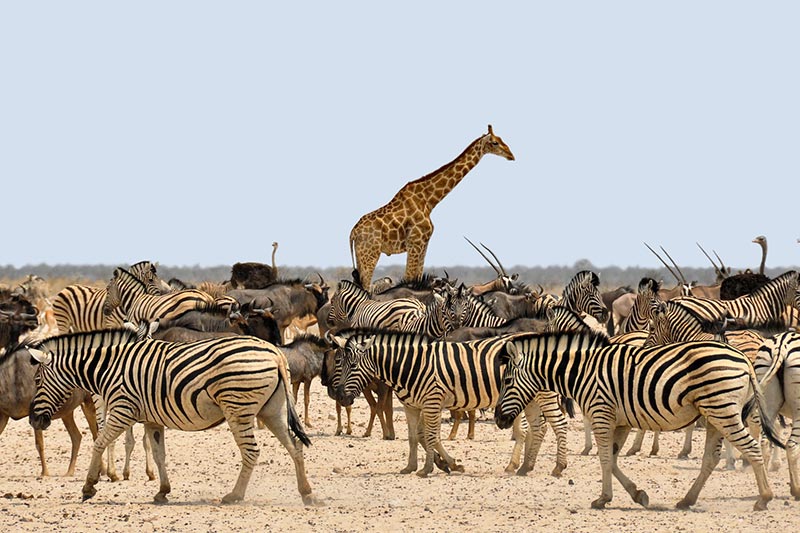

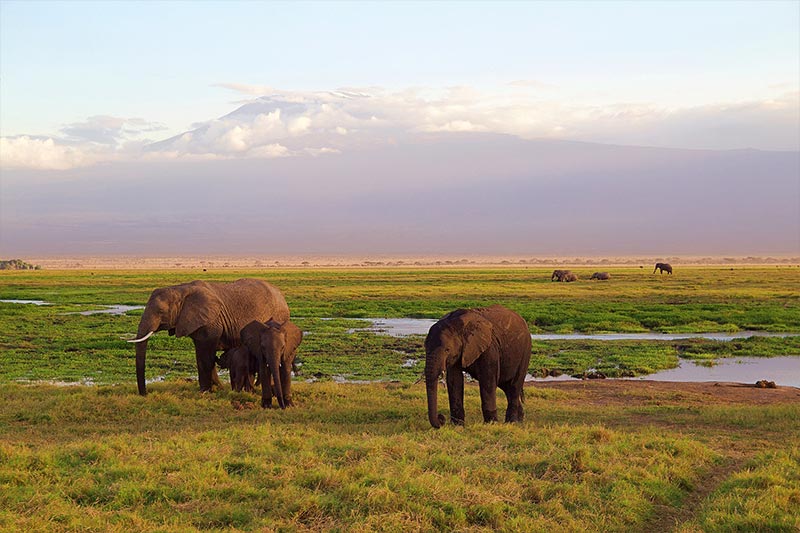
Connection
Particularly relevant today, when the world can appear highly divisive and full of conflict, tourism has one of the most powerful capacities to create connection. How can we understand something we don’t know? How can we respect, value and protect something we don’t understand?
An immersive experience in nature allows us to learn about the fascinating and intricate web of ecosystems and the part each species of flora and fauna plays; and how we fit within that natural sphere. Exploring Africa’s wilderness and its wildlife with a knowledgeable guide leads us to understand it. For many people today, living in urban areas with very little time to look beyond the computer or smartphone screen, the importance and relevance of biodiversity can be difficult to contemplate. But spend a week on safari, rising with the sun, walking on foot through some of the wildest places on earth, watching elephants interact as the sun sets, sitting under the stars at night, and you can’t helped be touched by the magnificence of our planet.
Travelling in Africa not only connects us with wildlife, but it creates connections with different cultures. It may be surprising to talk about the significance of human connections on a wildlife holiday, but these can often provide highlights of a safari. Whether chatting to staff in your lodge, spending time with your safari guide, or spending time with a local community, these exchanges offer a rare opportunity to learn about the challenges and values of people who live different lives from our own. This connection allows us to return home with better empathy, new perspectives and understanding.
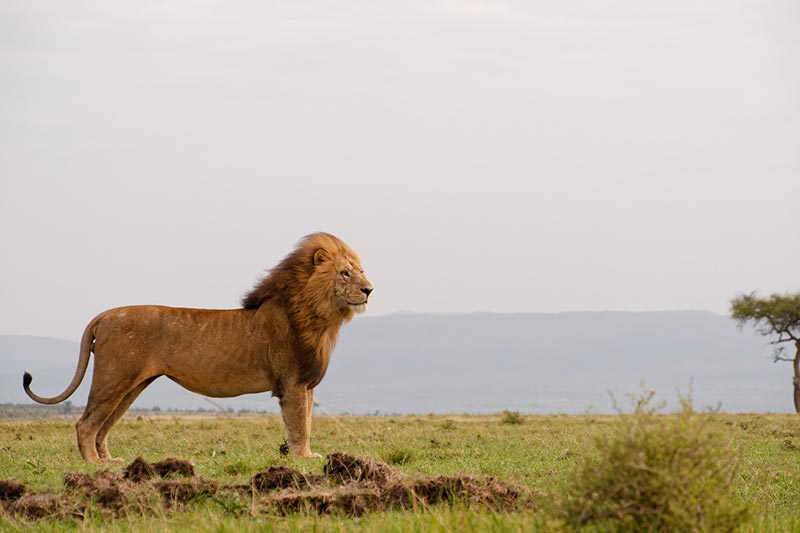
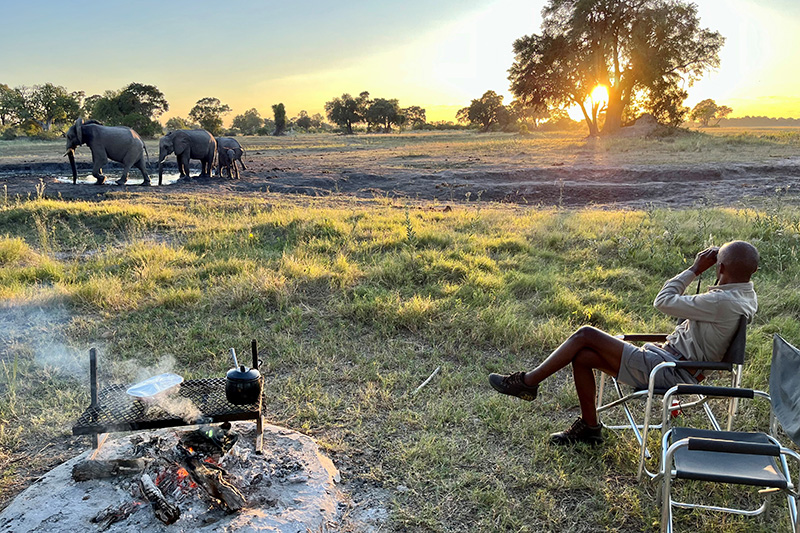
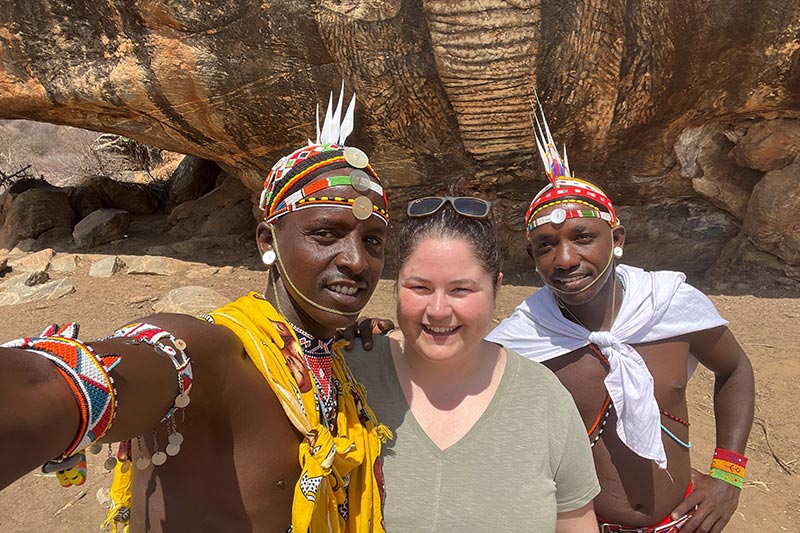
Impact on our global biodiversity
The Earthshot Prize recognises “Protect and Restore Nature” as one of its five Earthshot aims, citing that “by 2030 we choose to ensure that the natural world is growing, not shrinking, on our planet”.
The safari industry, of course, relies completely on the protection of natural spaces where wildlife can thrive. Many of the partners we work with in safari Africa are some of the world’s pioneers in conservation, with eco-tourism existing only as a means to protect wilderness areas. Healthy ecosystems are also all part of the carbon picture – grassland and forests are important carbon sinks and Africa holds some of the most richly biodiverse ecosystems in the world. Investing in nature is urgently needed and conservation fees and levies paid by those that travel on safari are an effective way to achieve conservation goals. If we were to stop travelling to Africa’s safari destinations, there would be a major shortfall in the revenue needed to maintain protected wilderness areas, carry out vital research and field anti-poaching measures. Read more about just some of the amazing conservation work being carried out in safari Africa in our blog which celebrated Earth Day earlier this year.
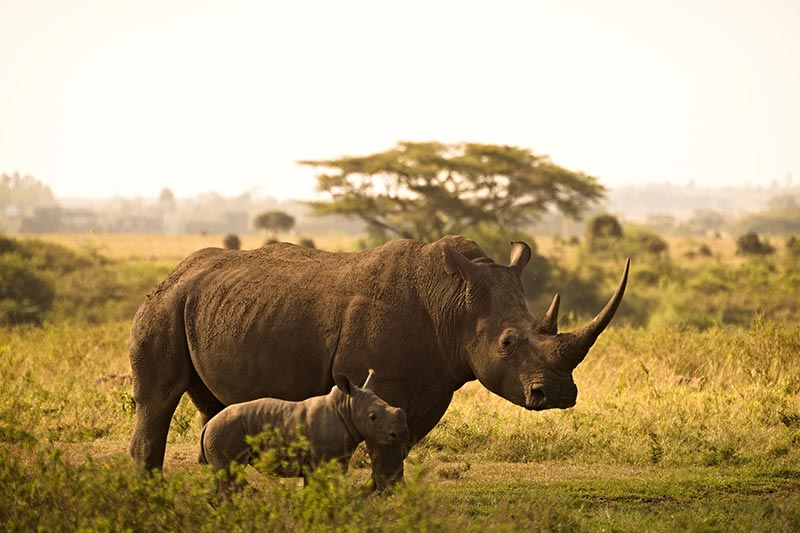
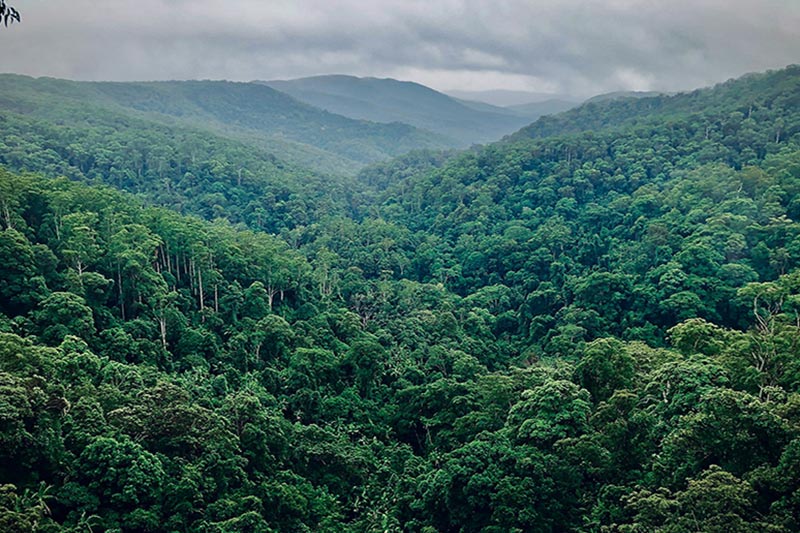
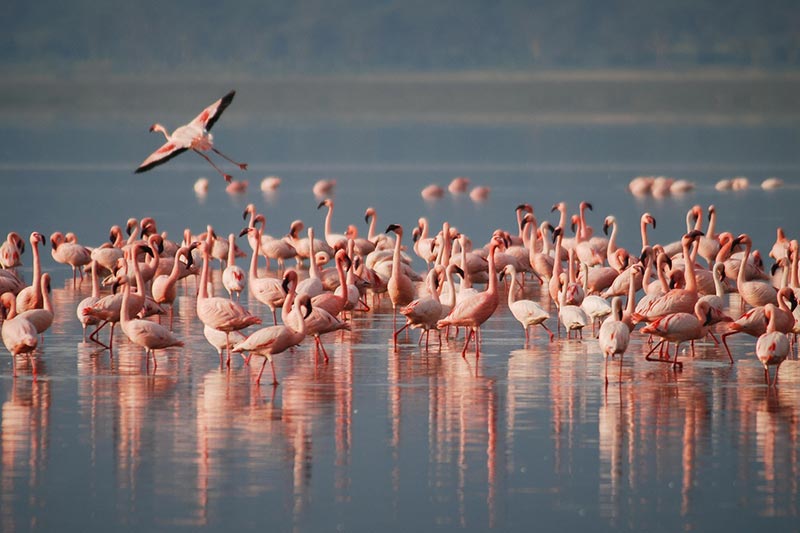
Impact on local communities
Key to successful conservation is engaging local communities and ensuring they see value in protecting nature. Safari tourism operates in areas where communities struggle to have access to basic needs such as clean water, medical facilities and education. It also operates in areas where conflict between communities and wildlife poses a significant threat and can mean loss of livelihood and life. While most safari camps and lodges employ from their local community, many businesses have a philanthropic arm which reaches far beyond providing employment. From school feeding programs, building medical clinics and sponsoring the salaries of teachers, to establishing local enterprises and providing skills training and female leadership opportunities, many of our partners in Africa support broader community upliftment. Made possible because of safari tourism.
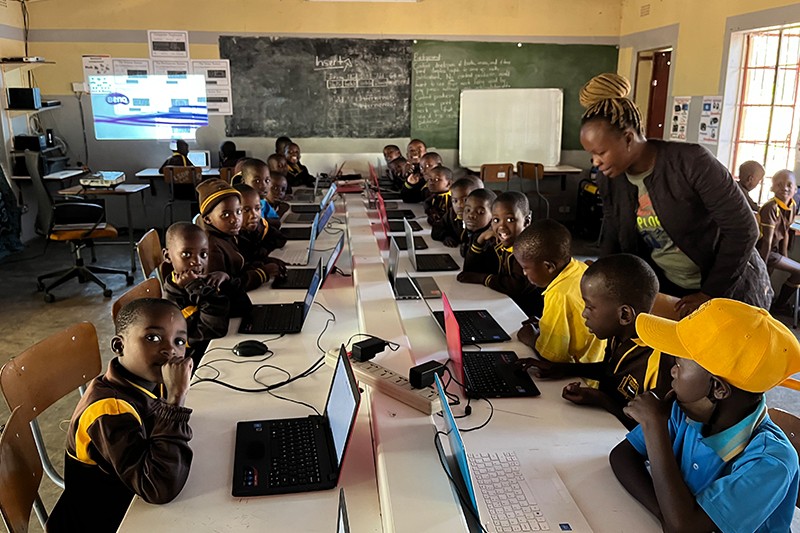
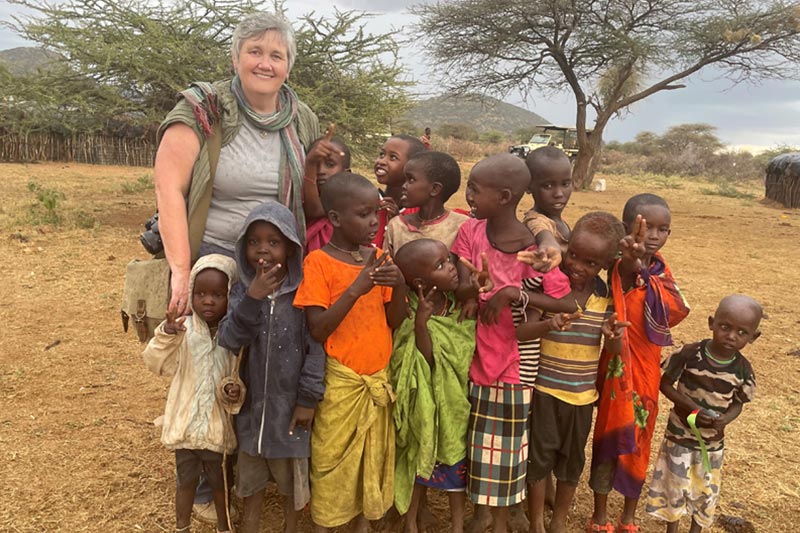

Climate Justice
Tourism emissions, the majority of which are emissions from aviation, are created by a tiny percentage of the global population. The uncomfortable truth is that communities most at risk from the effects of climate change are those who contribute least to the cause, and who are most under-resourced to cope with the impact. Ironically, many communities facing the brunt of climate change, also depend on tourism. So rather than stopping travel, responsible tourism can play an important role in supporting communities, as mentioned above, and helping them build resilience to threats caused by climate change.
How to make it count
African safari travel has the potential to create enormous positive impact, and offers the chance to travel with purpose, despite the negatives of long-haul travel. So how do we make the most of that potential?
Responsible travel certainly does not mean forgoing comfort, and nor does it mean compromising on the experience. It is perfectly possible to have the most luxurious, exclusive safari, and make a hugely positive impact.
Singita is arguably one of the most luxurious safari ‘brands’ out there (see Singita’s Sasakwa Lodge, Faru Faru Lodge) – their safari lodges in Tanzania, South Africa, Zimbabwe and Rwanda are breathtakingly sumptuous and they offer first class wildlife experiences. They also invest USD480 per bednight back into conservation and community development. Great Plains Conservation invites guests to experience their Relais & Châteaux standard safari camps in Africa’s prime wildlife destinations (see ol Donyo Lodge or Mara Plains Camp in Kenya, or Selinda Camp in Botswana for example). Their latest quarterly impact report details the training and hiring of three new female conservation rangers, the translocation of 71 giraffe, the planting of 1,119 indigenous trees and the provision of school meals to 13,901 children.

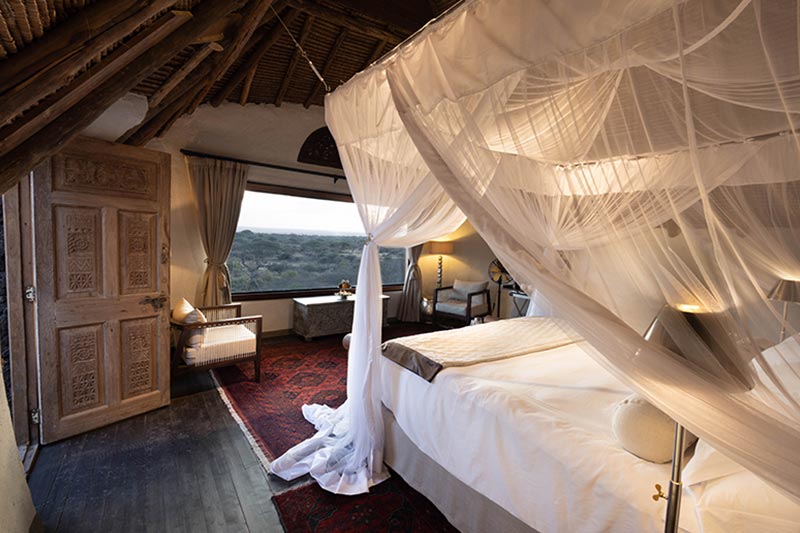
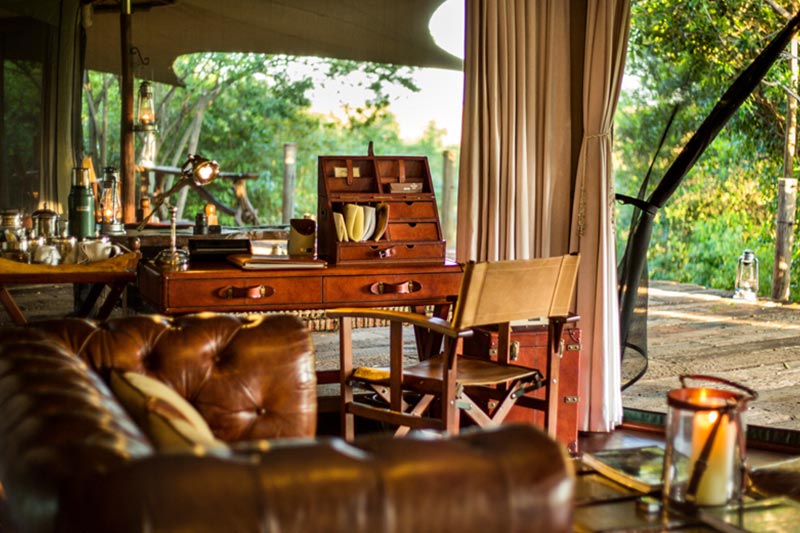
Here are our top tips for planning a safari holiday with a positive impact, without compromising on the experience:
- Booking through a responsible tour operator – planning your safari with a tour operator who works closely with suppliers and cares about how the camps operate on the ground will help ensure your safari has meaningful impact. They should be able to answer any questions you have about how your safari is contributing to the destination and how you can contribute further, should you wish.
- The slow safari – travelling at a slower pace and more consciously is possibly one of the most valuable pieces of advice when it comes to travel arrangements, and something we have always advocated. By staying longer in each place, you’ll have time to fully engage with where you are and build connections, whether it’s immersive time in nature, or time with your hosts. By staying longer in one area, your contribution to conservation and community support will be more impactful. In pure ‘green’ terms, fewer internal flights and road transfers lower the carbon footprint of the trip once you get there, whilst usually saving on costs too. And of course, you’ll return home with some incredible memories, feeling as though you’ve had a holiday (and not as though you need another one to recover!).
- Avoid the peak hot spots – some of Africa’s National Parks get a lot of attention, and thus a lot of visitor traffic (Kenya’s Masai Mara National Reserve being the most obvious). Staying in conservancies and private reserves bordering the National Parks, or in those National Parks that are less frequented, will offer a more exclusive safari experience while contributing conservation and community upliftment funds to critically important areas. Staying outside National Parks often offers a more flexible range of safari activities in addition to standard game drives – night drives, walking, fly-camping, to allow a more immersive safari.
- Travel off peak – booking your safari out of the high season not only means lower costs, and fewer tourists, but it helps to spread tourism revenue more evenly throughout the year. Seasonal variations are becoming less pronounced (ironically, of course, caused by climate change), so travelling in the ‘green’ or shoulder season doesn’t necessarily mean a compromise on wildlife viewing.
- Get more involved – if you’re keen to create more of a hands-on positive impact during your safari, there are increasingly available opportunities to get involved in conservation work or community projects. From joining a rhino conservation team for a few days on South Africa’s Eastern Cape, or booking the Ultimate Giraffe Safari with the Giraffe Conservation Foundation in Kenya; to spending half a day at a children’s home in northern Tanzania or beading with entrepreneurial Maasai women, there are wonderful ways in which to contribute at an experiential level.
You can read further tips on how to travel responsibly once in the destination on our Responsible Tourism website page.
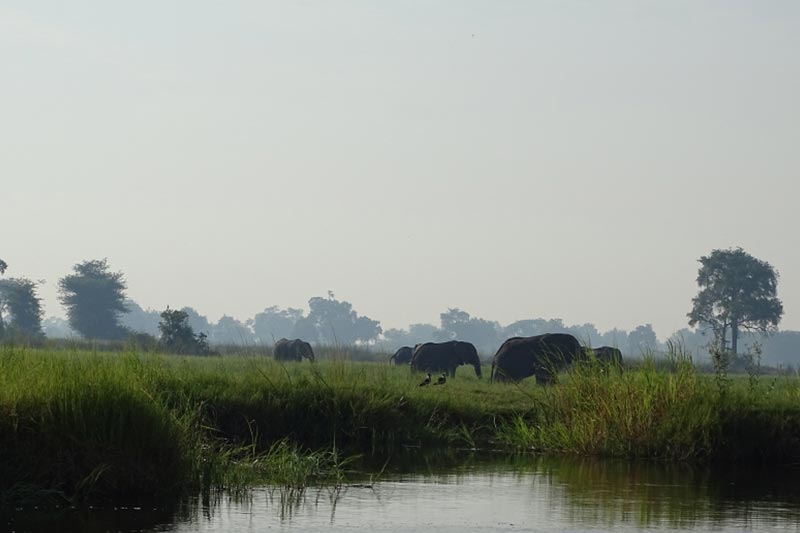
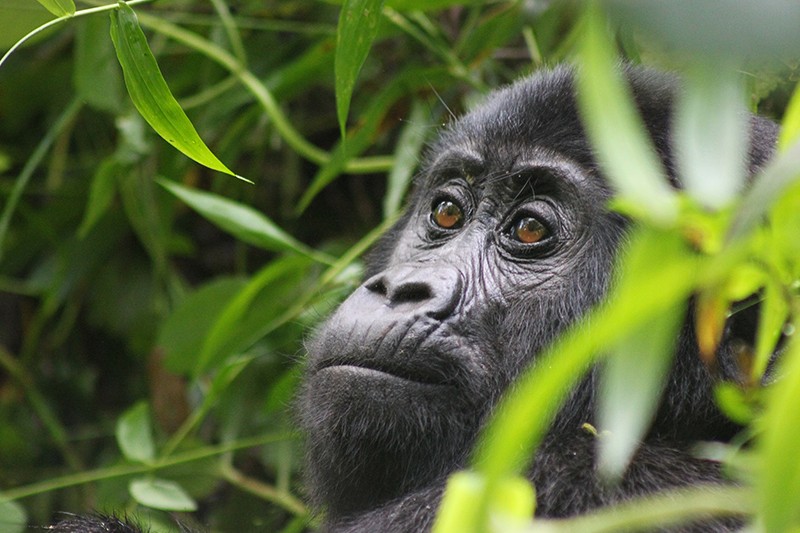
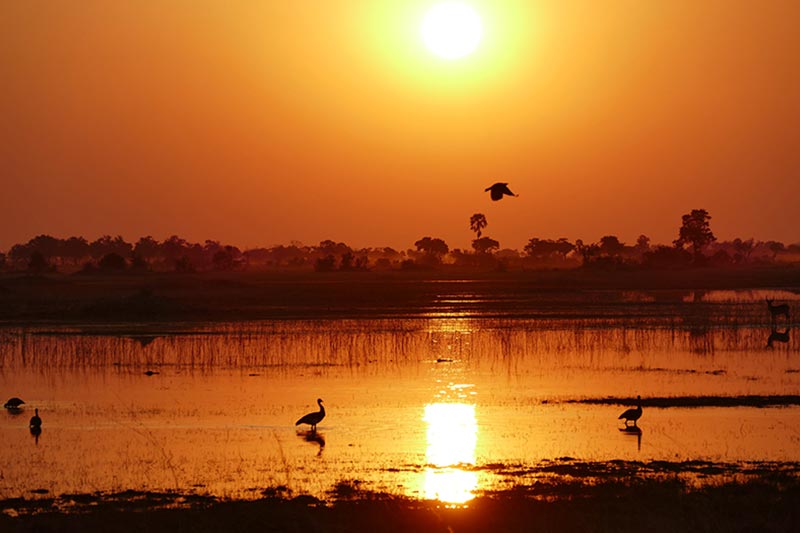
There is no getting away from the fact that long haul travel contributes to climate-disrupting carbon emissions. Looking at the bigger picture, however, shows how tourism can play an integral part in restoring, rather than destroying, our natural environment. Furthermore, tourism can contribute greatly to the creation of jobs for those that look after our wilderness areas and its wildlife. African safari tourism, in particular, has a superpower: making a valuable contribution to the care of our planet and to improvements in social equality.
A safari holiday, planned consciously, is not just another thing to consume; it offers so much more to both those that make the journey, and the people and places that host the journey. If we stopped flying to these far-flung wildernesses, our world would be all the poorer for it.
So rather than taking the joy out of travel, let’s celebrate the wonderfully positive impact that responsible safari tourism has, and embrace those richly rewarding experiences of a lifetime.
If you would like to know more details about how to plan a positive impact safari, please contact our friendly, knowledgeable team on +44 (0) 1787 888590 to discuss your requirements, or email us via our Contact Us page.

